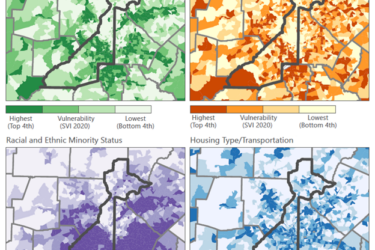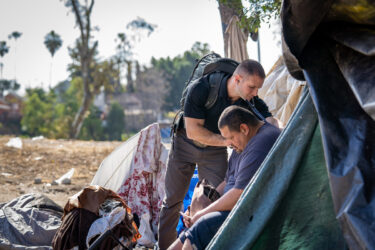
Among the many needs of refugees newly-arrived in the United States, dental care can be a particularly difficult and pressing one to obtain.
Fleeing lives of repression and trauma, some refugees have never had access to routine oral care. Poverty and cultural practices in their home countries may have compounded their dental problems. Once they make it to the United States, refugees, are generally eligible for Medicaid if they meet their state’s income and residency laws. But dental services and Medicaid dentists can be hard to find.
Advocates working to help refugees stressed the challenges to reporter Jiwon Choi, whose recent story for Minnesota Public Radio (MPR) offered a revealing look at the problem.
“It can be kind of scary,” observed Micaela Schuneman, director of refugee services at the International Institute of Minnesota. “A lot of our clients have lived in refugee camps before they come here. They may not have had access to toothpaste and even fresh water all the time to wash out your teeth.”
The dental experiences of Say Paw, 36, a Karen refugee from Myanmar served as a painful illustration of the point.
Before arriving in the U.S. in January, Paw had never seen a dentist. She had lost two front teeth in an accident and relied upon salt and charcoal for oral hygiene, Choi explained in the report.
A habit of chewing addictive and mildly-stimulating betel nuts may have further compromised her oral health. The practice, widespread throughout Southeast Asia, has been linked to health problems including oral lesions and cancers.
The betel nut habit is not the only oral health challenge that refugees may bring with them from their old lives. Arrivals from Ethiopia and other East African countries may have had the buds of their baby canine teeth removed, in keeping with tribal custom, Choi reported.
When Paw got her first dental visit in March, she was told by the dentist that none of her remaining teeth could be saved. In the story, she confessed that she dreaded returning for the extractions.
“I don’t want to go back,” Paw said.
Other refugees don’t get to the dentist at all.
Medicaid dental providers are in short supply in Minnesota and elsewhere: dentists often complain that the program’s reimbursement rates are too low.
All the while, the clock for finding help goes on ticking. Most refugees to the U.S. have just three months to secure an array of services before basic resettlement assistance from the government runs out.
“Once a refugee sets foot in the United States and is referred to Minnesota, he or she has a maximum of 90 days to receive essential resettlement services from a local agency through the federally-funded program,” Choi noted in her story.
As refugee advocate Schuneman explained: “Most of our clients arriving in the U.S. were not seeing a dentist, at least not with our assistance, because there were so many other things that needed to happen in 90 days.”
Check out this new AHCJ Q&A with Choi, in which we discuss how she found and developed this story.







